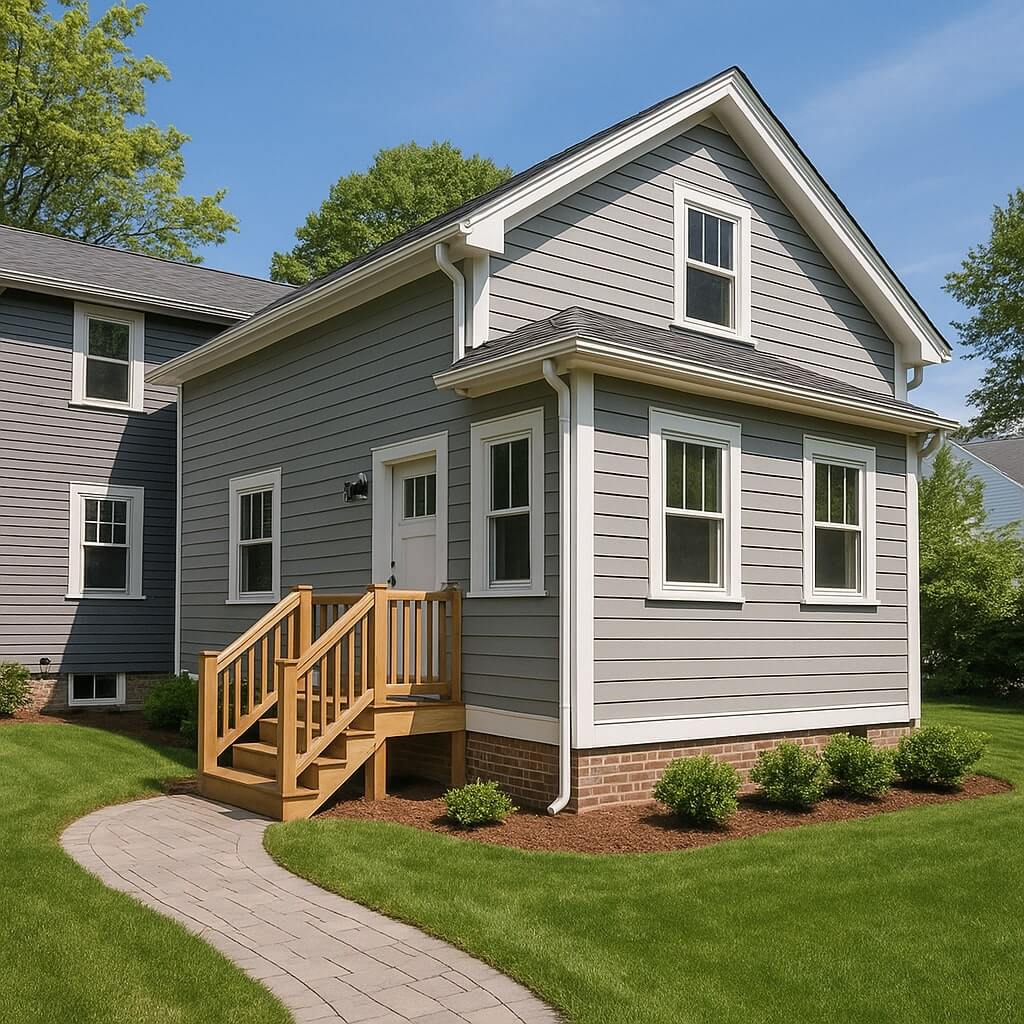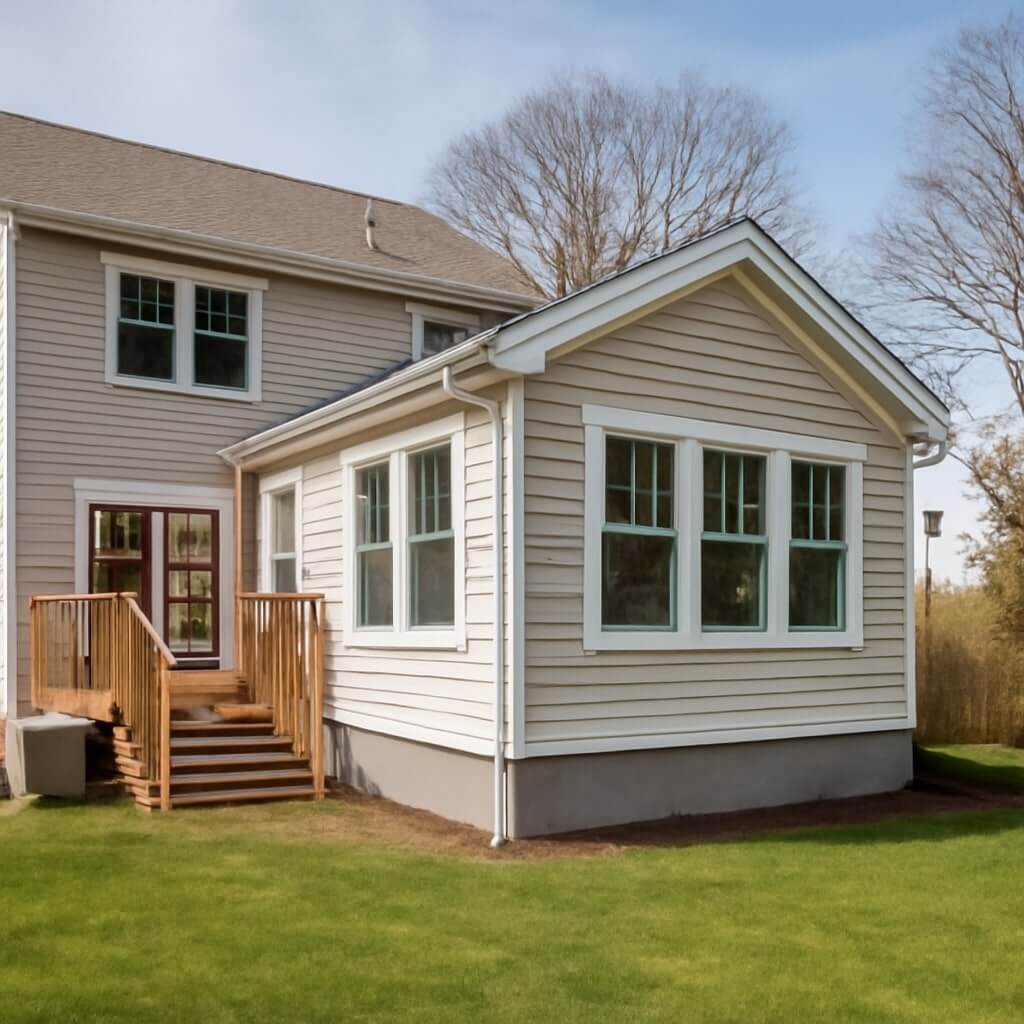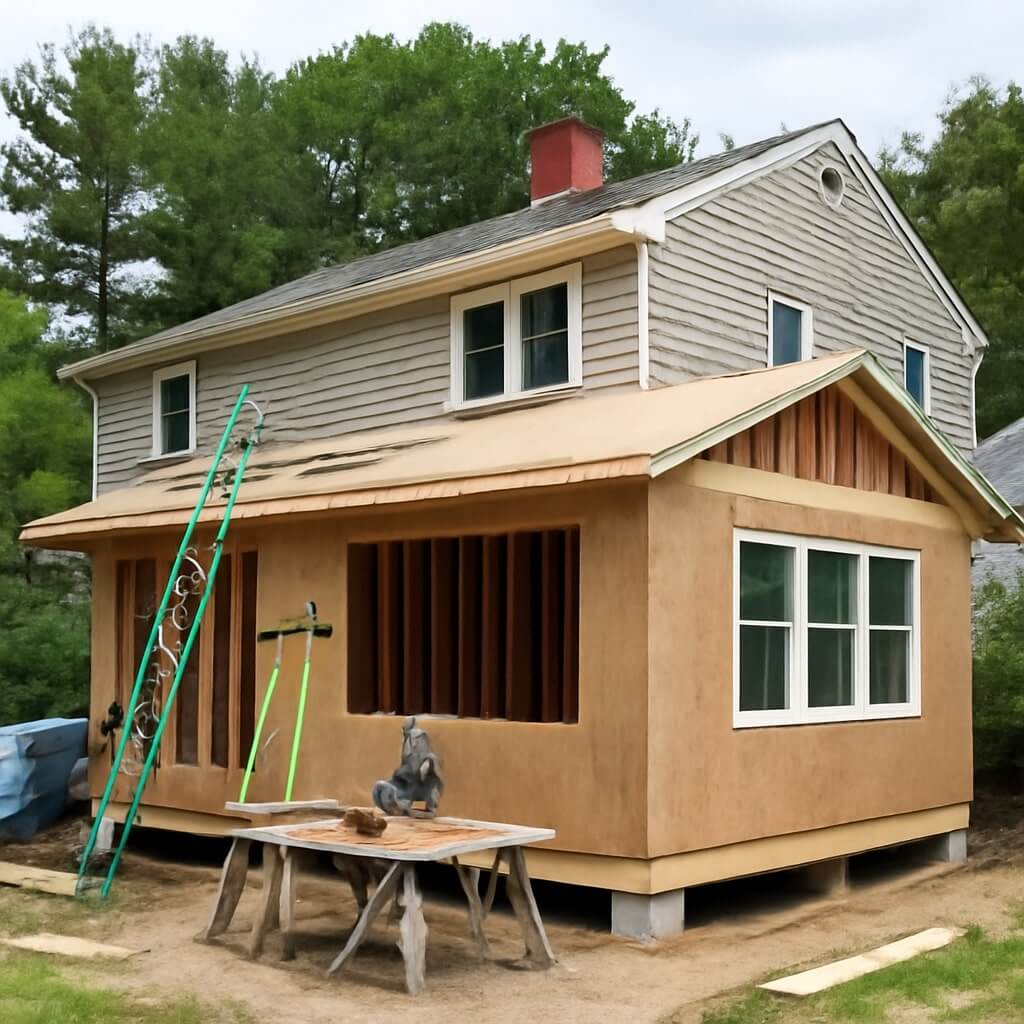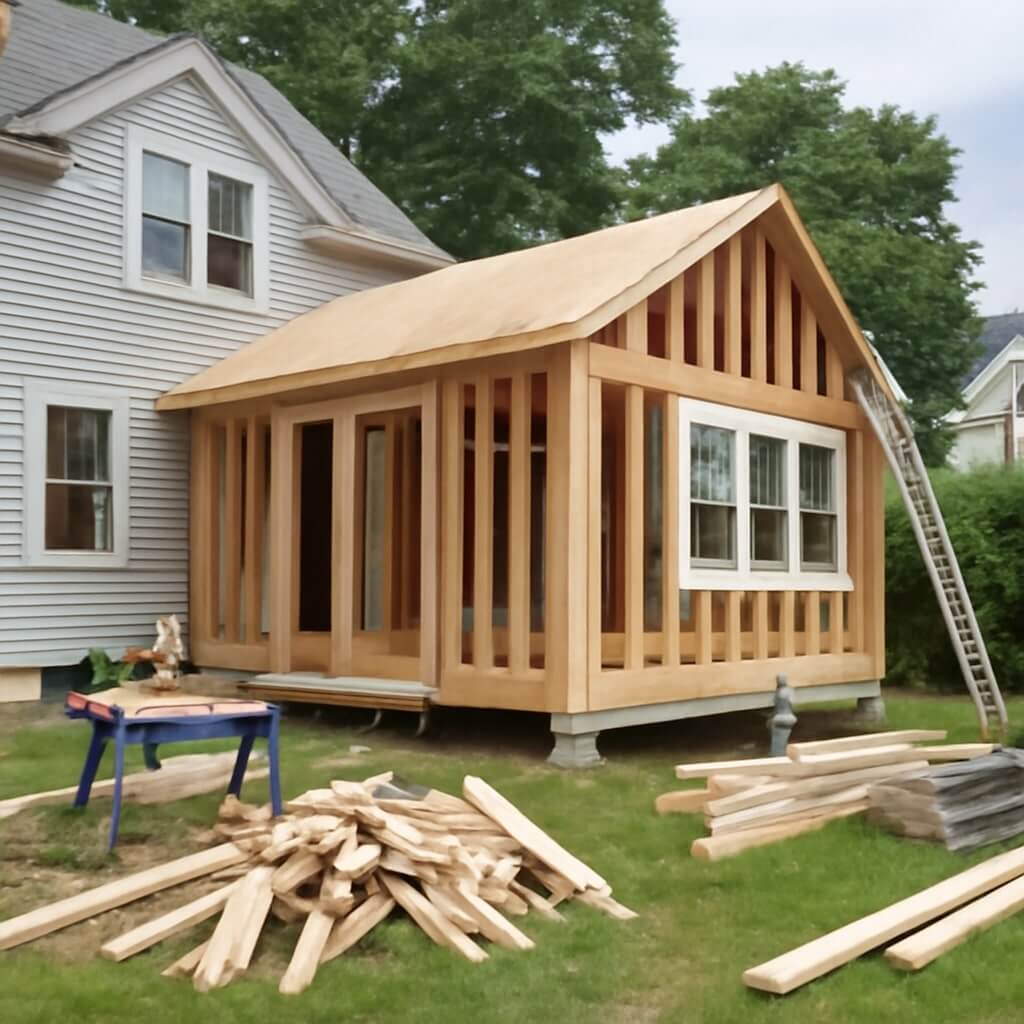When you’re considering a home addition in Belmont, MA, it’s essential to approach the project methodically. You’ll need to assess your specific needs and goals, while also managing local zoning laws and budgeting effectively. Each decision you make can greatly impact the outcome. Understanding these key considerations can set the foundation for a successful addition. But what about the design and hiring the right professionals? Let’s explore those important aspects next.
Key Takeaways
- Assess your family’s needs and prioritize features like extra bedrooms or a home office to guide your addition plans.
- Familiarize yourself with Belmont’s zoning regulations to ensure your proposed modifications comply with local guidelines.
- Develop a detailed budget that includes materials, labor, permits, and a contingency fund for unforeseen expenses.
- Choose a design that not only complements your existing home but also adheres to neighborhood aesthetics and standards.
- Hire qualified contractors by checking their experience, references, and licensing to ensure a successful project outcome.
Assessing Your Needs and Goals
When considering a home addition in Belmont, MA, how do you define your needs and goals?
Start by identifying priorities—think about what’s most important for your lifestyle. Do you need extra bedrooms, a home office, or a larger kitchen?
Next, evaluate space; assess your current layout and determine how best to expand or reconfigure it. Consider how the addition will enhance your home’s functionality and flow.
Make sure to align your goals with your budget, as it directly impacts your options.
Understanding Local Zoning Laws
When planning a home addition in Belmont, it’s vital to understand local zoning laws that govern property use.
Familiarizing yourself with zoning regulations will help you determine what modifications are permissible and guarantee compliance with local standards.
Additionally, steering through the permitting process is essential to avoid any legal issues that could arise during your project.
Zoning Regulations Overview
Understanding local zoning laws is essential for anyone considering a home addition in Belmont, MA, as these regulations dictate what can and can’t be built on your property.
Zoning classifications determine the type of structures allowed in various areas, impacting your design options. Additionally, you’ll need to comply with setback requirements, which specify how far your addition must be from property lines and streets.
Familiarizing yourself with these rules not only guarantees compliance but also helps you avoid potential fines or delays. Always check with the local zoning board for specific guidelines tailored to your neighborhood before starting your project.
Permitting Process Essentials
Maneuvering the permitting process is an essential step after grasping local zoning laws.
You’ll need to familiarize yourself with the specific permitting requirements that Belmont mandates for home additions. Start by gathering all necessary documentation, including site plans and structural details.
Submitting your application promptly is critical, as the application timeline can vary greatly depending on the complexity of your project. Be prepared for potential feedback or revisions from the zoning board, which can further affect your timeline.
Staying organized and proactive during this process will help guarantee a smoother journey toward your home addition approval.
Budgeting for Your Home Addition
When budgeting for your home addition, it’s essential to accurately estimate the total project costs, including materials and labor.
Don’t forget to factor in a contingency fund for unexpected expenses that may arise during construction.
Additionally, explore financing options to guarantee you have the necessary funds to complete your project smoothly.
Estimate Total Project Costs
Estimating the total project costs for your home addition in Belmont, MA, is an essential step that can greatly influence your overall budget.
A detailed cost breakdown helps you understand where your money is going and keeps your project on track with the timeline.
- Consider materials and labor costs
- Factor in permits and inspections
- Account for potential design changes
Factor in Contingency Fund
Including a contingency fund in your budget is a smart strategy for managing unexpected costs during your home addition project.
Unexpected costs can arise from various issues, such as hidden structural problems or changes in material prices. Effective contingency planning typically recommends setting aside 10-20% of your total budget for these unforeseen expenses.
This way, you won’t compromise your project’s quality or timeline. By factoring in this fund, you’ll guarantee a smoother process and reduce the stress of financial surprises.
Explore Financing Options Available
While planning your home addition, exploring financing options is essential to guarantee you stay within budget and achieve your vision.
You have several choices to evaluate:
- Home Equity: Tap into your home’s value to fund your addition, often with lower interest rates.
- Renovation Loans: These loans are designed specifically for home improvements and can cover both the renovation costs and purchase price.
- Personal Savings: If feasible, using savings can help avoid interest payments altogether.
Understanding these options will help you make informed decisions, ensuring your home addition is financially manageable and aligns with your overall budget.
Choosing the Right Design and Style
When considering a home addition in Belmont, MA, choosing the right design and style is essential to guarantee it complements your existing structure and enhances your living space. Aim for modern aesthetics that align with your home’s character while ensuring a functional layout that meets your needs.
| Design Style | Emotional Appeal |
|---|---|
| Contemporary | Fresh, Invigorating |
| Traditional | Comforting, Inviting |
| Minimalist | Calm, Peaceful |
Hiring Qualified Professionals
Hiring qualified professionals is essential to the success of your home addition project in Belmont, MA, as their expertise can greatly impact the quality of your renovation.
Expert professionals are crucial for a successful home addition in Belmont, MA, significantly influencing your renovation’s quality.
When selecting a contractor, consider their professional experience and reputation in the community. You want someone who not only understands your vision but also has a proven track record of successful projects.
- Check online reviews and references
- Ask about past projects similar to yours
- Verify they’re licensed and insured
Considering Impact on Property Value
Considering the impact on property value is essential when planning your home addition in Belmont, MA, as an intelligent investment can enhance both your living space and your home’s market appeal.
Researching current market trends helps you determine which additions yield the highest returns during a property appraisal. For instance, popular features like additional bedrooms or modern kitchens often attract buyers.
You’ll want to balance your personal needs with potential resale value, ensuring your investment aligns with community standards. Consulting local real estate experts can provide valuable insights, helping you make informed decisions that maximize your property’s future worth.
Planning for Disruption and Timeline
Before commencing your home addition project in Belmont, MA, it’s important to plan for the inevitable disruptions and establish a clear timeline.
Construction noise can be disruptive, so consider scheduling work during weekdays to minimize the impact on your family. You might even need temporary living arrangements if the project greatly affects your home.
- Set realistic deadlines for each phase of construction.
- Communicate regularly with your contractor to stay on track.
- Prepare for unexpected delays by maintaining flexibility in your timeline.
Conclusion
To sum up, successfully planning a home addition in Belmont, MA, requires careful consideration of your needs, local regulations, and budget. By choosing a design that complements your home and hiring qualified professionals, you’ll set the stage for a smooth process. Don’t forget to factor in how the addition will impact your property value and prepare for potential disruptions. Stay flexible and communicate openly with your contractor to navigate any challenges that arise along the way.




